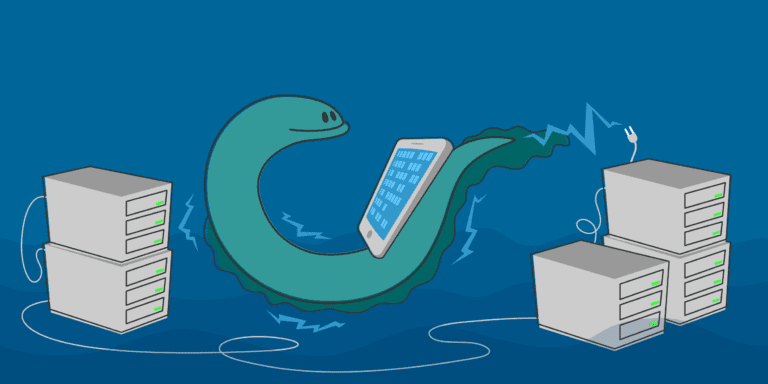Introduction

Selling online, whether its physical products, digital downloads, services, or experiences has never been more accessible. However, despite the relatively low barriers to entry when it comes to e-commerce and selling online, there are still some essentials that you need to take care of.
One of those essential components you need to get right is choosing the best e-commerce hosting. If your website or online store isn’t built on a solid foundation, then the best products, customer service, and marketing won’t be enough to ensure your business succeeds.
So to help you find the right web host for your e-commerce project, this guide will provide you with everything needed to make an informed decision.
Why Finding the Right E-commerce Hosting is So Important

When it comes to setting up an online shop, finding the right host is even more important than with a regular website.
Not only does your e-commerce website need to be online with minimal downtime, while also loading as quickly as possible, but you also need to pay extra special attention to security and keeping your customer data safe.
Now that you’re collecting personal data from your visitors, including payment details, you need to take your website and the service it’s hosted on more seriously than ever before.
Failing to do so could not only be fatal for your business but also land you in trouble with the authorities. As an e-commerce store owner, you have extra responsibilities that don’t apply to regular website managers. Therefore, it’s vital that you choose an e-commerce hosting solution that understands and appreciates this.
However, don’t let this put you off! By following the advice in this guide, you’ll be armed with all the information you need to choose the best e-commerce hosting provider for your online store.
Who is E-commerce Hosting For?

Unless you’re selling goods or services online you won’t need e-commerce hosting. However, if you have an online store that sells physical products, digital downloads, services, or anything else in exchange for a financial transaction, then you should definitely look for an e-commerce friendly hosting solution.
When it comes to creating your online shop, you have two main options. One is to design your own proprietary shopping cart solution, while the other is to use an off the shelf option.
The former is often the choice of large retailers or those with unique requirements. Using an off the shelf e-commerce solution, however, is suitable for retailers both large and small, especially those looking to keep costs low, leverage a tried and tested option, and speed up the development process.
Either way, some of the functionality your e-commerce store might need includes:
- Ability to display product information
- Ability to set product pricing
- Ability to track inventory
- Allow customers to search for products
- Allow customers to inspect products
- Allow customers to place products in a virtual shopping cart
- Collect payments from customers
- Collect shipping information
- Set tax rates
Popular existing e-commerce applications and toolkits provide all of the above and more and include WooCommerce for WordPress, OpenCart, Magento, ZenCart, and PrestaShop to name just a few.
Retailers large and small can rely on these applications to power their online stores because they include all or most of the features needed to sell online.
The best e-commerce hosting providers will support at least one of these applications including quick installation and store setup.
Pros of E-commerce Hosting

The best e-commerce hosting providers are going to provide everything you need right from your account dashboard. Since these plans come complete with everything you’re likely to need, there is often no need for you to download software to your computer and install it on your server.
1. Ease of use
Thus, the ease of use is the largest benefit you will find with a provider that offers e-commerce specific hosting.
For example, you can see from SiteGround how everything you need to get started with an e-commerce site is included.
2. Understanding of your needs
In addition to providing you with the necessary tools, providers that offer specific e-commerce hosting will optimize the service and servers for online stores.
This usually includes features such as:
- A content delivery network (CDN) to help make your site faster
- Guaranteed uptime so that you store is accessible 24 hours a day
- Security features to protect your customers and keep compliant
Some providers, such as Rackspace, offer fully managed e-commerce hosting that provides the features mentioned above.
3. Specialized support service
Supporting e-commerce sites requires specialized knowledge and experience. Not just to deal with the server configurations but also the software used for shopping carts and payment collections.
The best e-commerce hosting providers provide their customers with experienced, knowledgeable support representatives that help customers solve their issues while also understanding their business needs.
Hosting providers that do not focus on e-commerce aren’t often able to provide the level of support you might need when the time comes.
4. Relatively affordable
Choosing the right e-commerce hosting package doesn’t have to be expensive. Even when all of the necessary applications and features are included, the costs are generally reasonable for those starting out, especially when compared to the costs associated with opening a brick and mortar store.
5. Range of hosting packages
Hosting providers that specialize in e-commerce hosting offer multiple packages to help customers of all sizes find the right hosting plan for their needs. This not only keeps costs affordable but makes it easy to upgrade as your business grows.
6. Support for service integrations
Finally, many e-commerce hosting providers integrate with other enterprise level applications such as customer relationship management or enterprise resource planning solutions.
This allows you to better track orders, customer loyalty, inventory and other data you may need to better run your business.
Cons of E-commerce Hosting

As with any type of hosting, there are some negative aspects to e-commerce hosting.
1. Costs can be higher than expected
Low-cost introductory plans designed for smaller businesses may not offer some of the features and applications that may help your business run as smoothly as possible. Businesses that rely on these features for their online store may wind up spending more than they first expected.
2. Easy to create an unoriginal store
Another drawback to e-commerce hosting comes from how easy it can be to launch a store.
This may not seem like a drawback, however, if you look at e-commerce services like Shopify you’ll see that just about anyone can set up an online store within minutes. As seen from their site, they offer templates so no design skills are needed.
The problem here is you wind up with a lot of sites that look alike. If you rely only on the template provided, your shop won’t stand out from the competition.
However, this is an easy hurdle to overcome. Even when using an e-commerce platform like Shopify, you can take the time to customize your site or build your own rather than relying on a stock template.
3. Extra security requirements
As mentioned, e-commerce sites require a greater deal of security. Your customers are entering payment information on your site that may be stored in your database.
You are responsible for making sure that this information isn’t stolen in transit or from your database.
Be sure that you are going to take security seriously if you intend on running an e-commerce site. If a breach occurs, your business is held responsible.
Things to Look for with E-commerce Hosting

When looking for the best e-commerce hosting, start by finding a provider that specializes in e-commerce hosting. You can tell if they do by checking to see if they offer specific e-commerce hosting packages.
1. E-commerce focused plans
If they simply claim to support e-commerce hosting but don’t offer plans tailored to this then avoid that provider. There are plenty that do.
2. SSL support
Next, you’re going to want to look for a hosting provider that offers secure socket layer, or SSL. This is necessary to create an encrypted transaction.
If there is no support for SSL, look elsewhere for a host. Without SSL you will be out of compliance with the card payment industry.
3. Common shopping cart support
Another important thing for an e-commerce hosting provider to have is the ability to support common shopping cart software. You should be able to install this easily from your management console or request it be installed for you.
4. Database access
Most of the time, the installer will configure your database for you as well. However, make sure that you have access to the database so you can make changes if need be.
What to Pay Attention to When Choosing an E-commerce Host

One of the first things people look at with hosting providers is the price. Of course, you’re going to want to find an e-commerce host that fits within your business’ budget, however, make sure that the low cost doesn’t mean sacrificing the essentials.
1. Product limits
For example, some plans will put a limit on the number of products or categories that you are able to set up on your site. Read the fine print to ensure that your plan isn’t going to limit what you can offer to your customers.
2. Bandwith and storage allowances
As with any hosting plan, you’re also going to want to pay attention to the bandwidth allowance you have as well as the storage space.
3. Uptime guarantees
While you are looking at these, also look into the guarantees when it comes to uptime. If your site goes down due to provider issues, you’ll be losing sales and hurting your reputation.
4. Security provisions
Another area to pay close attention to is security. As stated earlier, you are held accountable if your site or database is compromised and customer information is exposed.
You want to be sure that your provider works with you to comply with PCI-DSS standards.
5. Payment methods supported
Finally, you want to pay attention to what type of payment gateways your provider will allow you to use. Do you plan on accepting PayPal, credit cards or a combination of both?
No matter what payment type you plan to use — both now and in the future — you need a hosting provider that can support you.
Conclusion
Finding the right e-commerce hosting provider takes a lot off the stress out of running an online store. The benefits of knowing the essentials are taken care of and that when a customer wants to make a purchase, the site is up and running and the transaction is secure makes it well worth taking the time to find the right hosting provider.
Finding the right partner to host your online store isn’t as hard as you may think. Just follow the guidelines outlined in this article and you will eliminate the providers that will give you problems.
Once you’re able to narrow down your search, go with the provider that meets the specific needs of your online store. You will find that there are small nuances among the best providers. Try to match these small things up with the needs of your business and you’ll be able to find the best e-commerce hosting for your project.




